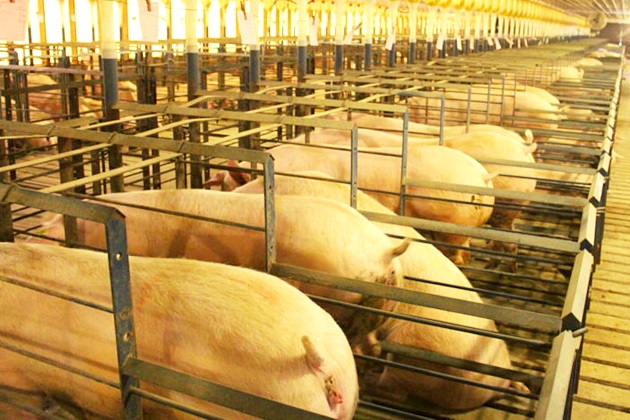1057

According to PigProgress, the US Supreme Court has confirmed the legality of the controversial Proposition 12, an animal welfare law adopted in California in 2018 that mandates increased space for pigs in shelters to provide them with more comfort. The US pork industry has strongly opposed Proposition 12 for years.
Inside Proposition 12
"We are extremely disappointed by the Supreme Court's opinion," said Scott Hays, President of the National Pork Producers Council, in a press release. "Allowing the state to exceed its boundaries will raise prices for consumers and force small farms out of business, leading to further consolidation. We are still evaluating the full opinion of the court to understand all the implications. NPPC will continue to fight for our nation's pork farmers and American families against misguided regulations."
This legislation, fully implemented in January 2022, sets standards for confinement systems for breeding sows, poultry, and calves in California. Each breeding sow must have 2.23 square meters (24 square feet) of space, and gestation crates are not permitted.
However, Prop 12 also prohibits any company from selling in California any pork, veal, or eggs derived from animals housed in a manner that violates the standards.
Massachusetts has a similar law to Prop 12 that includes sales in the state of pork produced in other states, but enforcement has been suspended until the Supreme Court decides.
Court summaries
In October 2022, the US Supreme Court heard arguments from the NPPC and other parties in favor of the court finding Prop 12 illegal. The arguments focused on the commerce clause of the US Constitution.
That is, the NPPC, in collaboration with the American Farm Bureau Federation, filed a brief arguing that Prop 12 violates the clause, which restricts states from regulating commerce beyond their borders. The US government agreed with the NPPC and other groups. The US Attorney General also filed a request with the Supreme Court to overturn Proposition 12.
In October, Canadian pork producers filed a "friend of the court" complaint against the legality of Proposition 12, in collaboration with other parties, including Mexican pork producers.
The only pork company that filed an Amicus Brief in support of Proposition 12 at the Supreme Court, Niman Ranch, was pleased with the decision. Niman Ranch is "a network of family farmers and ranchers raising pork, beef, and lamb humanely and sustainably, without antibiotics or added hormones" and the largest network of farmers and ranchers in North America that is "certified humane."
Its pork operations have always been 100% crate-free and keep the pigs "outdoors or in deeply bedded pens, without tail docking, tooth clipping, or other industry-standard practices."
Pork companies complying with Proposition 12
Two of the largest pork companies in the US, Tyson Foods and Hormel, have already agreed to comply with Prop 12 about two years ago.
Canada's leading integrated pork producer, Maple Leaf Foods, has already transitioned its entire production to open housing for gestating sows.
Another major Canadian pork producer, duBreton, based in Quebec, produces a line of "certified humane" pork sourced from Canadian farms and complies with Prop 12.
Future challenge?
The US Supreme Court's decision to uphold Prop 12 was a close one: 5-4. However, one of the dissenting justices, Chief Justice Kavanaugh, noted that the parties could challenge the court's decision.
In his concurring opinion accompanying the court's decision, he stated that "while the Court today rejects the challengers' dormant Commerce Clause claim as insufficient, state laws like Proposition 12 implicate not only the Commerce Clause, but potentially several other constitutional provisions, including the import-export clause, the privileges and immunities clause, and the full faith and credit clause."





